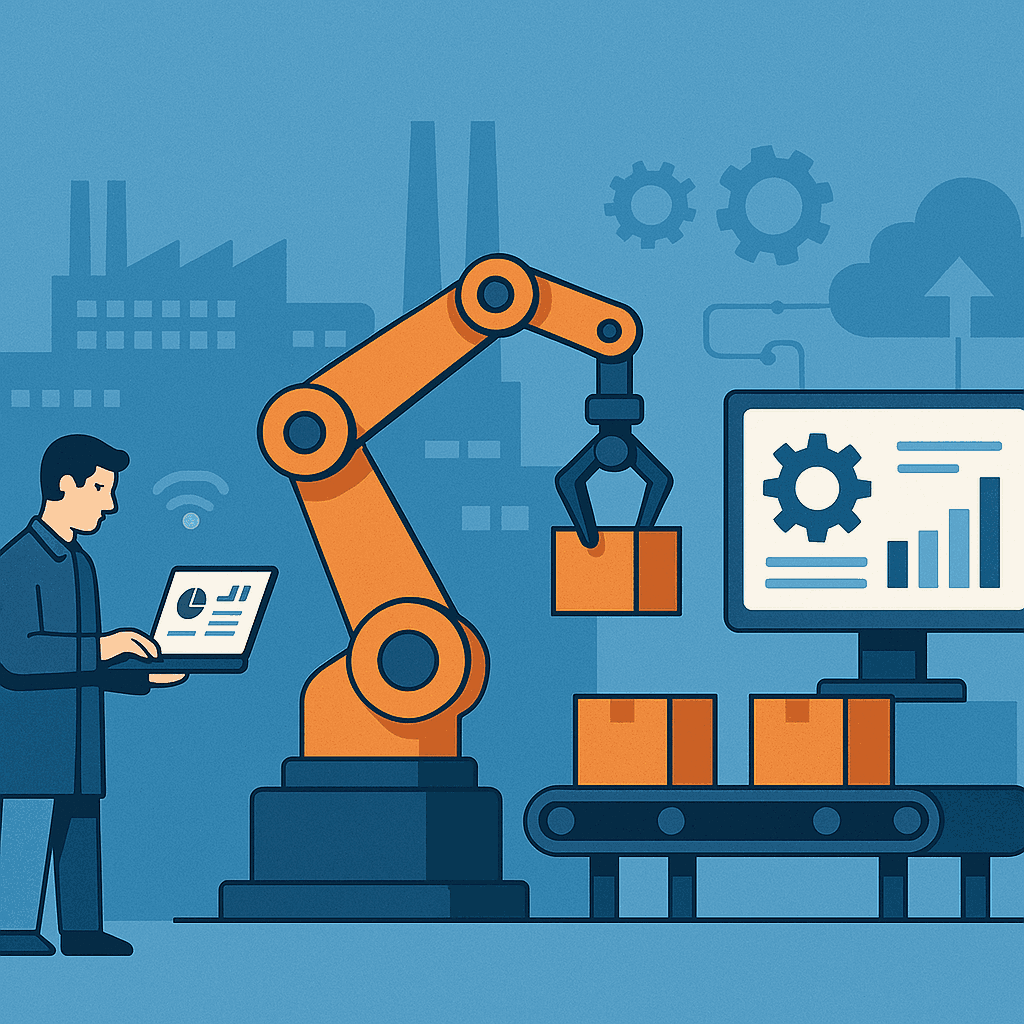As we stand on the brink of a new industrial era, the concept of the smart factory emerges as a cornerstone of Industry 4.0. This evolution is not just a trend but a significant shift in how we approach manufacturing and production.
What is a Smart Factory?
A smart factory is an advanced manufacturing facility where machines, systems, and humans communicate seamlessly. By integrating technologies like the Internet of Things (IoT), artificial intelligence (AI), robotics, and digital twins, these factories operate with heightened efficiency and adaptability. This integration allows for real-time decision-making and self-optimization, reducing the need for manual interventions.
Why Smart Factories are Crucial for Industry 4.0
The transition to smart factories is pivotal in the digital transformation of industries. They serve as the backbone of Industry 4.0, enabling manufacturers to respond swiftly to market changes, customize products on demand, and optimize resources. This agility is essential for staying competitive in today's fast-paced environment.
Key Technologies Driving Smart Factories
- Internet of Things (IoT): Connects devices and machinery, facilitating data exchange and real-time monitoring.
- Artificial Intelligence (AI): Analyzes data to predict maintenance needs, optimize operations, and enhance decision-making.
- Robotics: Automates repetitive tasks, increasing precision and efficiency.
- Digital Twins: Creates virtual models of physical assets, allowing for simulation and optimization before implementation.
- Predictive Maintenance: Utilizes data analytics to foresee equipment failures, reducing downtime and maintenance costs.
Benefits of Implementing Smart Factories
- Increased Efficiency: Automation and real-time data lead to streamlined processes and reduced waste.
- Cost Savings: Optimized operations and predictive maintenance lower operational expenses.
- Real-Time Monitoring: Continuous data collection provides immediate insights into production, enhancing quality control.
- Sustainability: Efficient resource utilization and energy management contribute to environmental conservation.
Real-World Examples
Several automotive giants have embraced the smart factory model:
- Ferrari's E-Factory: In Maranello, Italy, Ferrari invested €200 million in a state-of-the-art facility designed by architect Mario Cucinella. This 42,500 square meter e-building integrates 3,000 solar panels and rainwater storage, aligning with Ferrari's goal to be carbon neutral by the decade's end. The factory's design emphasizes both sustainability and worker well-being, featuring internal gardens and ample natural light.
- Jaguar Land Rover's Halewood Plant: Located in Merseyside, England, this facility underwent a £250 million transformation to support electric and autonomous vehicle production. Upgrades include 750 robots, laser alignment technology, and cloud-based systems, positioning the plant for future automotive innovations.
The Role of iACE in Shaping the Future
At the International Automobile Centre of Excellence (iACE), we recognize the importance of smart factories in the evolving automotive landscape. Our automotive training institute offers after engineering courses tailored to equip professionals with the skills needed to thrive in these advanced manufacturing environments. By focusing on practical, hands-on training, we ensure our students are prepared to contribute effectively to the industry's future.
Adopting the smart factory paradigm is no longer optional but essential for those aiming to lead in the era of Industry 4.0. Through continuous learning and adaptation, we can harness the full potential of these technological advancements.


